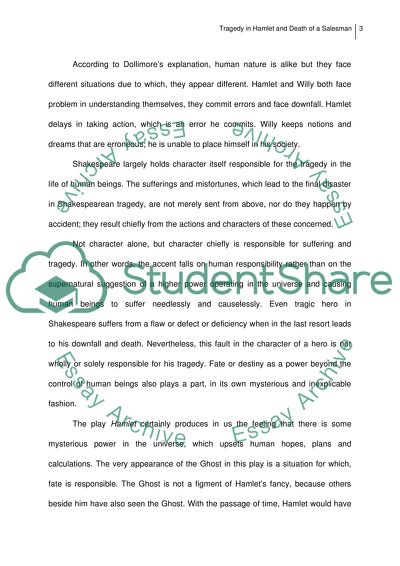Cite this document
(“Tragedy in Hamlet and Death of a Salesman Essay”, n.d.)
Tragedy in Hamlet and Death of a Salesman Essay. Retrieved from https://studentshare.org/literature/1553761-tragedy-across-the-ages-use-hamlet-and-death-of-a-salesman-to-draw-paralles-between-the-plays-while-society-schools-of-thought-and-genres-have-changed-tragedy-at-its-core-has-stayed-the-same
Tragedy in Hamlet and Death of a Salesman Essay. Retrieved from https://studentshare.org/literature/1553761-tragedy-across-the-ages-use-hamlet-and-death-of-a-salesman-to-draw-paralles-between-the-plays-while-society-schools-of-thought-and-genres-have-changed-tragedy-at-its-core-has-stayed-the-same
(Tragedy in Hamlet and Death of a Salesman Essay)
Tragedy in Hamlet and Death of a Salesman Essay. https://studentshare.org/literature/1553761-tragedy-across-the-ages-use-hamlet-and-death-of-a-salesman-to-draw-paralles-between-the-plays-while-society-schools-of-thought-and-genres-have-changed-tragedy-at-its-core-has-stayed-the-same.
Tragedy in Hamlet and Death of a Salesman Essay. https://studentshare.org/literature/1553761-tragedy-across-the-ages-use-hamlet-and-death-of-a-salesman-to-draw-paralles-between-the-plays-while-society-schools-of-thought-and-genres-have-changed-tragedy-at-its-core-has-stayed-the-same.
“Tragedy in Hamlet and Death of a Salesman Essay”, n.d. https://studentshare.org/literature/1553761-tragedy-across-the-ages-use-hamlet-and-death-of-a-salesman-to-draw-paralles-between-the-plays-while-society-schools-of-thought-and-genres-have-changed-tragedy-at-its-core-has-stayed-the-same.


